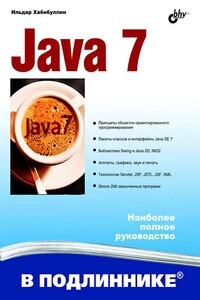Энциклопедия разработчика модулей ядра Linux | страница 36
>int init_module() {
> /* Success if proc_register_dynamic is a success,
> * failure otherwise */
>#if LINUX_VERSION_CODE >= KERNEL_VERSION(2,2,0)
> return proc_register(&proc_root, &Our_Proc_File);
>#else
> return proc_register_dynamic(&proc_root, &Our_Proc_File);
>#endif
> /* proc_root is the root directory for the proc
> * fs (/proc). This is where we want our file to be
> * located. */
>}
>/* Cleanup - unregister our file from /proc. This could
>* get dangerous if there are still processes waiting in
>* WaitQ, because they are inside our open function,
>* which will get unloaded. I'll explain how to avoid
>* removal of a kernel module in such a case in chapter 10. */
>void cleanup_module() {
> proc_unregister(&proc_root, Our_Proc_File.low_ino);
>}
Замена для printk
В начале (глава1), я сказал, что X и программирование модулей ядра не совместимы. Это истинно при разработке модуля, но в фактическом использовании, Вы должны быть способны послать сообщениям любому tty[10]. Это важно для идентификации ошибок после того, как модуль выпущен, потому что он будет использоваться через любой из терминалов.
Путем этого достичь: используя текущий указатель на задачу, выполняемую в настоящее время, получить ее структуру tty. Затем мы смотрим внутри этой структура tty, чтобы найти указатель на функцию, пишущую строку на tty. Ее мы и используем для вывода.
>/* printk.c - send textual output to the tty you're
>* running on, regardless of whether it's passed
>* through X11, telnet, etc.
>*/
>/* Copyright (C) 1998 by Ori Pomerantz */
>/* The necessary header files */
>/* Standard in kernel modules */
>#include
>#include
>/* Deal with CONFIG_MODVERSIONS */
>#if CONFIG_MODVERSIONS==1
>#define MODVERSIONS
>#include
>#endif
>/* Necessary here */
>#include
>#include
>/* Print the string to the appropriate tty, the one
>* the current task uses */
>void print_string(char *str) {
> struct tty_struct *my_tty;
> /* The tty for the current task */
> my_tty = current->tty;
> /* If my_tty is NULL, it means that the current task
> * has no tty you can print to (this is possible, for
> * example, if it's a daemon). In this case, there's
> * nothing we can do. */
> if (my_tty != NULL) {
> /* my_tty->driver is a struct which holds the tty's
> * functions, one of which (write) is used to


